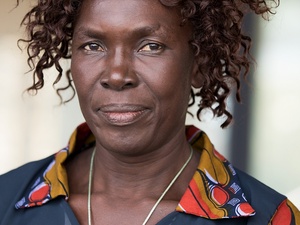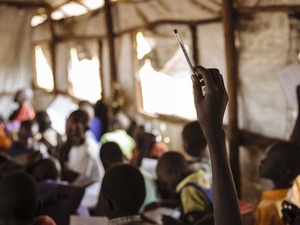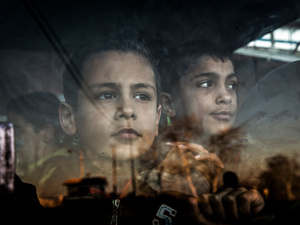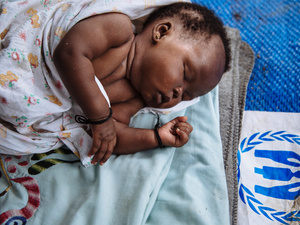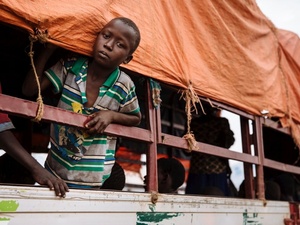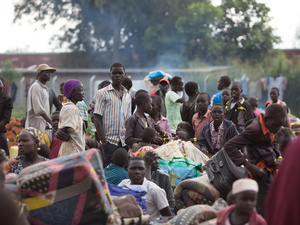South Sudan refugees in Uganda pass 1 million mark

South Sudan refugees in Uganda pass 1 million mark
UNHCR, the UN Refugee Agency, is today reiterating its call to the international community for urgent additional support for the South Sudan refugee situation and Uganda in particular, where the number of refugees from South Sudan has now reached 1 million.
Over the past 12 months, an average of 1,800 South Sudanese have been arriving in Uganda every day. In addition to the million there, a million or even more South Sudanese refugees are being hosted by Sudan, Ethiopia, Kenya, Democratic Republic of the Congo and Central African Republic.
In Uganda, more than 85 per cent of the refugees who have arrived there are women and children (below 18 years in age). Recent arrivals continue to speak of barbaric violence, with armed groups reportedly burning down houses with civilians inside, people being killed in front of family members, sexual assaults of women and girls, and kidnapping of boys for forced conscription.
With refugees still arriving in their thousands, the amount of aid we are able to deliver is increasingly falling short. For Uganda, US$674 million is needed for South Sudanese refugees this year, but so far only a fifth of this amount (21 per cent) has been received. Elsewhere in the region, the picture is only marginally better – in all US$883.5 million is needed for the South Sudan situation, but only US$250 million has been received.
The funding shortfall in Uganda is now significantly impacting the abilities to deliver life-saving aid and key basic services. In June, the World Food Programme was forced to cut food rations for refugees. Across settlements in northern Uganda, health clinics are being forced to provide vital medical care with too few doctors, healthcare workers and medicines. Schooling, meanwhile is also being impacted. Class sizes often exceed 200 pupils, with some lessons held in the open air. Many refugee children are dropping out of education as the nearest schools are too far away for them to easily access.
Since December 2013, when South Sudan’s crisis erupted in Juba, more than two million South Sudanese have fled to neighbouring countries, while another two million people are estimated to be internally displaced.
(Please refer to the last page or https://goo.gl/ZnXD4P photos and media assets info)
Media contacts
Carrie Pau, PSP Communication Manager Tel: (+852) 2206 0219 Email: [email protected]


